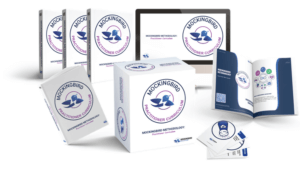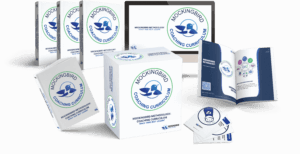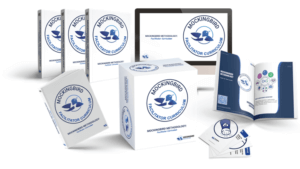Teach · CoacH · Mentor
Mockingbird Education

Talent and Development Program
Develop Staff Talent and Internal Expertise!

Develop Master Trainers and Coaches to Train, Develop, and Coach Staff!
Mockingbird’s Talent Development Program is a three-tiered training program to develop internal expertise in the Mockingbird Methodology. Develop internal capacity to help your program reach its’ fullest potential.
Our Talent Development Program is a three-tier training program.
Three-Tier Training Program
- Practitioner Program: Train and Certify Practitioners in the Mockingbird Methodology.
- Coaching Program: Develop Methodology Coaches to Support Staff Using the Mockingbird Methodology.
- Facilitator Program: Develop Your Own Methodology Trainers to conduct Methodology workshops.
Talent and DEvelopment Program
-
Capacity to Train and Develop Practitioners, Coaches, and Facilitators in Mockingbird Methodology
-
3 Curriculums contain all training and development resources
-
Ongoing Support from Mockingbird
-
Customized workshops and coaching from Mockingbird
Practitioner Development Program

Practitioner Program
-
Level 1: Tools and resources for Practitioners using the Mockingbird Methodology
-
-
Resources for Mockingbird Methodology Level 1
-
Online Access to Training Material
-
The Methodology Practitioner program is designed for practitioners including teachers, coaches, mentors, and counselors that work with vulnerable participants in education and social service programs.
The Practitioner Curriculum (Level One) is 9 units
- Unit 1: Understanding a Biopsychosocial Approach
- Unit 2: Doors of Trust and Trust-Building
- Unit 3: Engagement Strategies
- Unit 4: Productive Participation
- Unit 5: Directing Attention
- Unit 6: Coaching Strategies
- Unit 7: Mentor Care Model
- Unit 8: Classroom Culture
- Unit 9: Program Consistency
In the Mockingbird Methodology, the practitioner is a coach, teacher, and mentor to the vulnerable learners enrolled in their classroom or program.
The goal of the program is to help practitioners…
- Compassionately and responsively teach, coach, and mentor vulnerable learners in classroom settings
- Learn therapeutic strategies to create transformative learning experiences
The Practitioner curriculum provides the resources and education that practitioners need to understand vulnerability through a therapeutic biopsychosocial lens and deliver holistic learning experiences through behavior-based facilitation, coaching, and mentoring strategies.
- Training Manuals
- Strategy Guides
- Strategy Cues
- Strategy Videos
- Classroom Lessons
- Strategy Learning Workbooks
- RTG Maps
- Online Courses
- Research
The curriculum has been used to train and prepare thousands of staff to work in holistic education programs.
Curriculum is being implemented throughout the United States in Adult Basic Education Programs, High Schools, Community Colleges. Mental Health Programs, Correctional Facilities, Youth Development Programs, and other social service programs.
We welcome inquiries from research institutions and colleges who are interested in researching student outcomes, impact, etc.
Program is informed by over 60 years of research in cognition, social cognition, trauma-informed care, cognitive behavioral therapy, behavioral psychology, adult education, neurobiology, and socio-emotional learning theory.
Mockingbird provides ongoing support, reinforcement, and coaching throughout program.
Practitioner Development Program

Coach Program
-
Level 1: Prepares Professionals to coach staff in behavior-based skills
-
Level 2: Prepares Professionals to Coach Practitioners in Mockingbird Methodology
-
Resources for Coaching Level 1 and Level 2
-
Online Access to Training Material
-
The Coaching Program is designed for staff developers that coach staff in the Methodology Practitioner Curriculum.
The curriculum is also appropriate for staff that want to learn a collaborative coaching approach for coaching practitioners in behavior-based strategies.
The Coaching Curriculum (Level One) is 17 units
8 units are dedicated to the knowledge and skills for understanding and using the collaborative coaching process. These units include:
- Unit 1: Understanding The Practitioner Curriculum
- Unit 2: Coaching for Talent Development
- Unit 3: Program Culture
- Unit 4: Elements of Improvement (Coaching Plan)
- Unit 5: Collaborative Coaching and Feedback
Stages of Growth - Unit 6: Respect the Gradient Maps
- Unit 7: Deliberate Practice as a Coaching Tool
- Unit 8: Tiny Habits as a Coaching Tools
9 units are dedicated to coaching staff in the Practitioner Curriculum strategies in the following units:
- Unit 1: Understanding a Biopsychosocial Approach
- Unit 2: Doors of Trust and Trust-Building
- Unit 3: Engagement Strategies
- Unit 4: Productive Participation
- Unit 5: Directing Attention
- Unit 6: Coaching Strategies
- Unit 7: Mentor Care Model
- Unit 8: Classroom Culture
- Unit 9: Program Consistency
Coaches provide support and mentoring through collaborative coaching conversations and feedback through classroom observations. Coaches are knowledgeable in the Practitioner curriculum strategies and experts in the collaborative coaching process for behavioral change.
The goal of program is to help coaches…
- Coach practitioners in teaching, coaching, and mentoring strategies for working with vulnerable learners as identified in the Mockingbird Practitioner curriculum
- Develop staff talent in the Mockingbird Methodology
- Learn how to coach staff in behavior-based strategies
Our coaching approach helps coaches develop the talent and skills for coaching staff in the Mockingbird Practitioner curriculum and in adopting general behavioral-based teaching, coaching, and mentoring strategies.
- Training Manuals
- Strategy Guides
- Strategy Cues
- Strategy Videos
- Classroom Lessons
- Strategy Learning Workbooks
- RTG Maps
- Online Courses
- Research
Curriculum is informed by research in adult learning theory, behavioral change, behavioral psychology, professional coaching, and talent development.
Mockingbird provides ongoing support, reinforcement, and coaching throughout program.
Practitioner Development Program

Facilitator Curriculum
-
Level 1: Prepares Professionals to facilitate workshops using the Mockingbird approach
-
Level 2: Prepares Professionals to Facilitate Mockingbird Workshops
-
Resources for Facilitation Level 1 and Level 2
-
Online Access to Training Material
-
The Methodology Facilitator Program is designed for staff developers that facilitate workshops and that want to facilitate workshops in the Mockingbird Methodology.
The Facilitation Curriculum (Level One) is 18 units
9 units are dedicated to the knowledge and skills for understanding and using the Mockingbird facilitation process. These units include:
- Unit 1: Understanding a Biopsychosocial Approach to Facilitation
- Unit 2: Facilitation 101
- Unit 3: Environment and Opening Atmosphere
- Unit 4: Directing Attention
- Unit 5: Coaching Participation Behaviors
- Unit 6: Socratic Dialogue
- Unit 7: Engagement Dashboard
- Unit 8: Presentation Formula
- Unit 9: Workshop Exit Ramp
9 units are dedicated to coaching staff in the Practitioner Curriculum strategies in the following units:
- Unit 1: Understanding a Biopsychosocial Approach
- Unit 2: Doors of Trust and Trust-Building
- Unit 3: Engagement Strategies
- Unit 4: Productive Participation
- Unit 5: Directing Attention
- Unit 6: Coaching Strategies
- Unit 7: Mentor Care Model
- Unit 8: Classroom Culture
- Unit 9: Program Consistency
Facilitators play the role of coach, teacher and mentor to participants enrolled in their workshops. They develop expertise in cognition and behavioral psychology and are demonstration teachers of the Mockingbird Methodology.
Facilitators must undergo an intense development process. Before you can present Mockingbird Methodology material as a facilitator, you must be able to demonstrate competency in the content, and the facilitation of the content.
Mockingbird facilitators are expertise in the Mockingbird Methodology and are knowledgeable in the Coach curriculum strategies.
The goal of program is to help facilitators…
- Lead Mockingbird Methodology workshops.
- Develop staff talent in the Mockingbird Methodology
- Learn how to facilitate workshops using a biopsychosocial approach.
Facilitator program helps trainers develop the talent and skills for leading interactive workshops in the Mockingbird Methodology. The training program develops staff into seasoned workshop facilitators.
- Training Manuals
- Strategy Guides
- Strategy Cues
- Strategy Videos
- Classroom Lessons
- Strategy Learning Workbooks
- RTG Maps
- Online Courses
- Research
Program is informed by over 60 years of research in cognition, social cognition, trauma-informed care, cognitive behavioral therapy, behavioral psychology, adult education, neurobiology, and socio-emotional learning theory.
Mockingbird provides ongoing support, reinforcement, and coaching throughout program.
